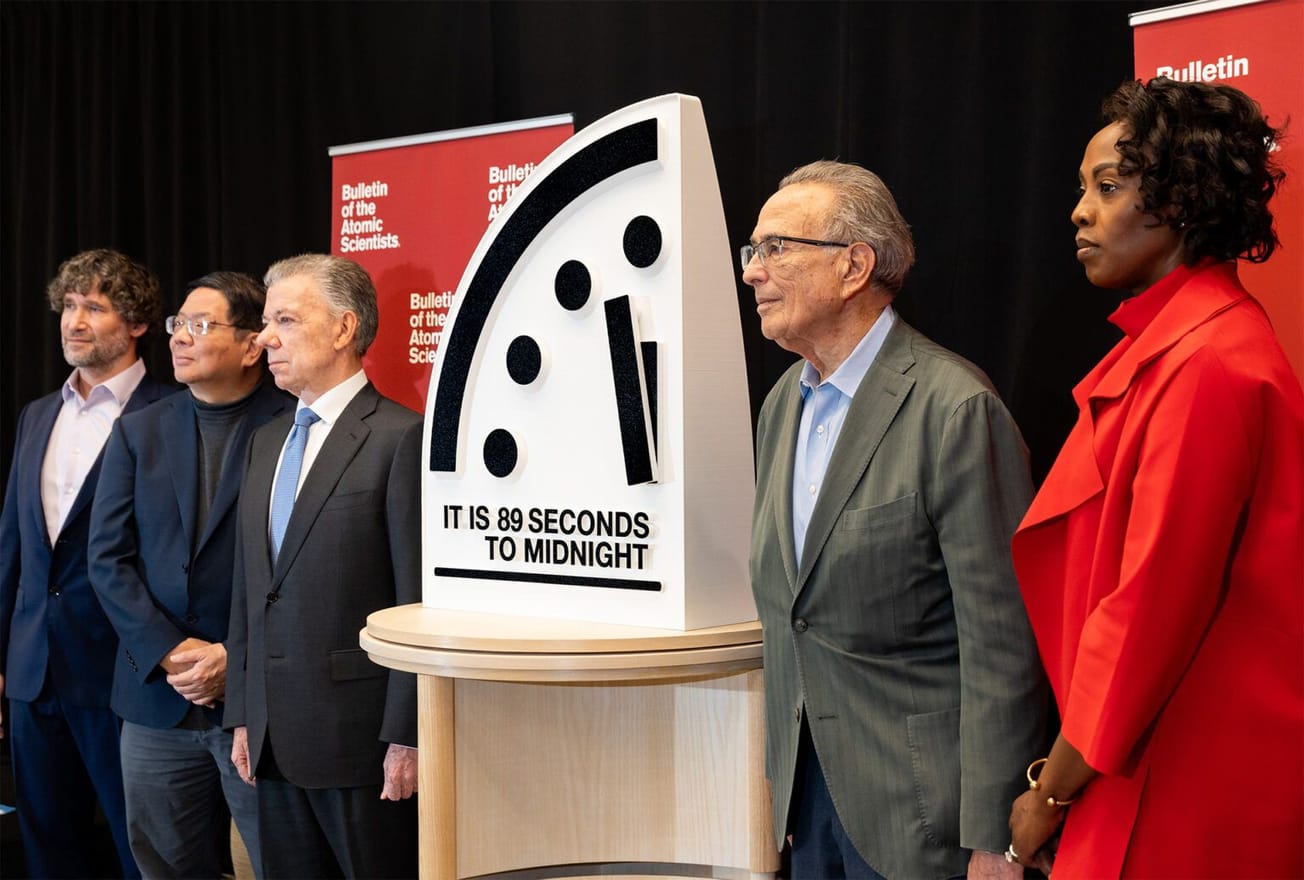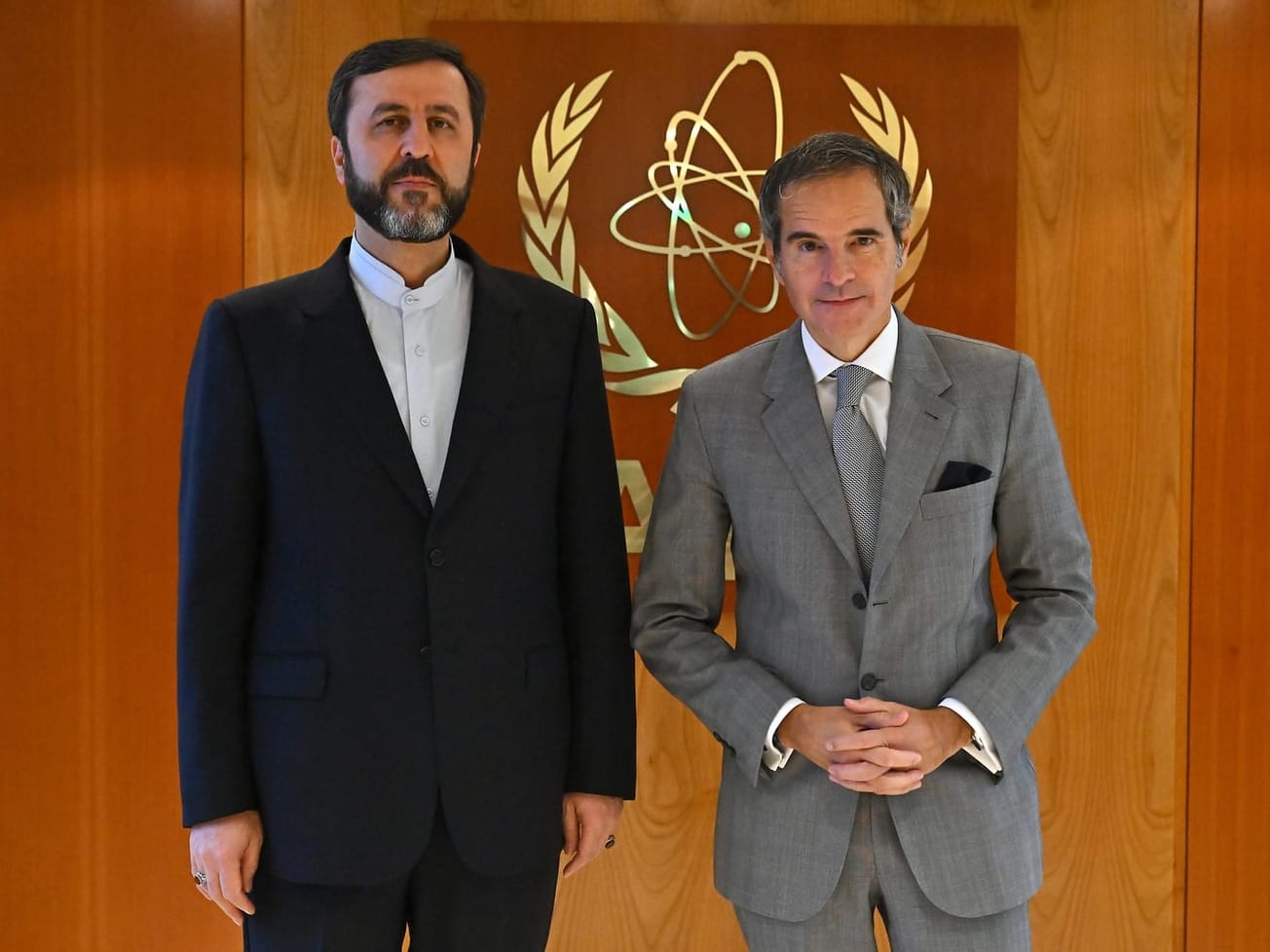A day after the Group of 20 issued a similar warning, NATO Secretary General Jens Stoltenberg described the nonproliferation agenda as weak and crumbling.
"This is a deeply challenging period – for arms control and for our security in general," Stoltenberg told a conference on arms control on Tuesday where he described Russia and China as dangerously irrresponsible nuclear-armed powers.
"We stand at the crossroads. In one direction lies the collapse of the international arms control order. And the unrestricted proliferation of weapons of mass destruction. With profoundly dangerous consequences," Stoltenberg said.
Despite his concerns, Stoltenberg emphasized the need to negotiate new arms control arrangements. He spoke at the annual NATO conference on arms control, disarmament and the nonproliferation of weapons of mass destruction that was being held in Washington this week by NATO and the U.S. State Department.
"There is an alternative way ahead," he said. "One where we do the work, however difficult. Where we build trust, develop new behaviours, and increase our security. It will not be easy, and it will not be quick. But it is vital that we do it."
On Monday, the Group of Seven's nonproliferation directors expressed alarm that Russia, China and North Korea have all been pushing to expand their nuclear-armed capabilities.
Russia announced in February it would stop participating in the New START nuclear arms treaty with the United States that obliges the two nations to reduce and limit their forces.
Then in late March, Russian President Vladimir Putin announced that Russia will deploy tactical nuclear weapons in Belarus, Ukraine's northern neighbor, and has already begun training Belarusian air force crews in how to use them.
"These are irresponsible acts. Designed to deter NATO Allies from supporting Ukraine," Stoltenberg said. But they will not work. Because while we take Russia’s threats seriously, we will not be intimidated."
At the same time, China has been "rapidly growing its nuclear arsenal without any transparency about its capabilities," he said. "Iran and North Korea are blatantly developing their own nuclear programs and delivery systems."
The world is perilously close to blundering into a nuclear catastrophe, U.N. Secretary-General António Guterres warned at the opening of a high-level conference last year to review the 1970 Nuclear Nonproliferation Treaty, a cornerstone of global nonproliferation.
Nations have a sense of "false security" stockpiling 13,000 nuclear weapons when "humanity is just one misunderstanding, one miscalculation away from nuclear annihilation," he told the August 2022 conference.
The United States and #NATO are co-hosting the Conference on Weapons of Mass Destruction, Arms Control, Disarmament, and Non-Proliferation in Washington, United States, April 17th-20, 2023.https://t.co/KM3xug80ls pic.twitter.com/eAQx2FTISf
— NATO ACT (@NATO_ACT) April 18, 2023
Hope after the 'unraveling'
Putin's threat to use nuclear weapons in the Ukraine war has sparked worldwide concern. As of last year, five of the world's nine nuclear-armed nations – drove up the global arsenal of nuclear weapons available for use, an international watchdog program reported.
Diplomats from the U.S. and Russia held talks in Geneva in July 2021 seeking ways to defuse rising tensions and avoid a new nuclear arms race, soon after the Swiss-hosted U.S.-Russia summit between Putin and U.S. President Joe Biden.
Former U.S. President Donald Trump allowed the 1987 Intermediate-Range Nuclear Forces Treaty to expire in 2019. It was signed by former U.S. President Ronald Reagan and Soviet leader Mikhail Gorbachev to ban all U.S. and Soviet land-based ballistic and cruise missiles that could strike targets 500-5,500 kilometers away.
China, India, North Korea, Pakistan and Russia all increased their stockpiles of nuclear warheads in 2022, according to a report last month from the Nuclear Weapons Ban Monitor.
It said the total number of nuclear warheads available for use worldwide – including those held by France, Israel, the United States and the United Kingdom – rose to 9,576 in early 2023, equal to the firepower of 135,000 Hiroshima bombs.
But at the start of 2023, the nine nuclear-armed nations had a total of 12,512 nuclear warheads, down from 12,705 a year earlier, said the Ban Monitor produced by Norwegian People's Aid and the Federation of American Scientists. The total amount includes those that are no readily available for use.
Russia, with 5,889, and the U.S., with 5,244, have by far the most. The next most are held by China, 410, France, 290, and the United Kingdom, 225.
By 2035, however, China will have an estimated 1,500 nuclear warheads, Stoltenberg said.
"As a global power, China has global responsibilities. And Beijing too would benefit from the increased transparency, predictability and security of arms control agreements," he said.
But he reminded the world that the most successful arms control agreements were forged during times of heightened tensions such as during the Cold War.
"Our world is more dangerous and less predictable than it has been for generations. And the arms control regimes that we have depended on for so long are unraveling," he said.
"But we need to remember that arms control agreements are not made between friends. They are made between adversaries," he said. And it can happen again now."








